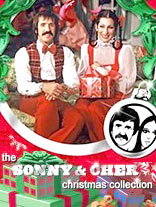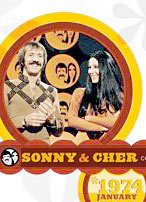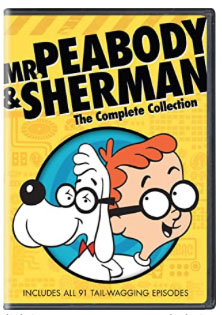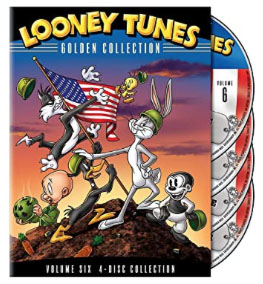|
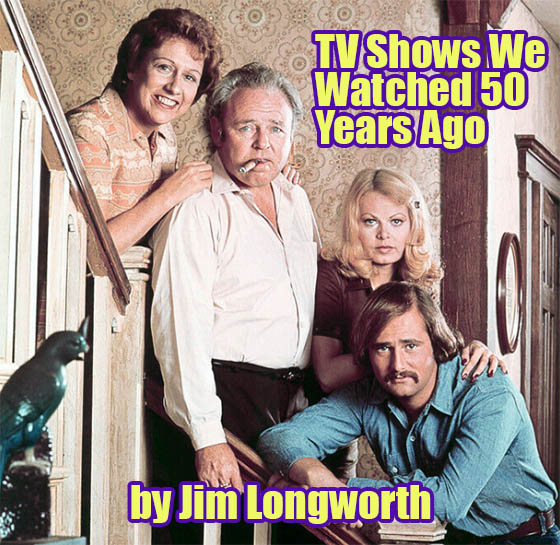
Most of us watching television fifty years ago had three choices: ABC, CBS, and NBC. In some markets there was an independent station on UHF, but there was no CW, FOX, or WB. There was no Paramount+, or Hulu or Netflix. There was no such thing as DirecTV, and less than ten million households even had cable. Back then the three networks offered us around 60 different prime time shows each season. Things are different today. According to Nielsen’s State of Play report there are now 817,000 individual TV shows available from a plethora of providers, and the audience share of streaming video now outpaces that of broadcast television.
The good news is that, thanks to various streaming services and nostalgia channels, we can still enjoy many of the shows that dotted the prime-time television landscape during the 1973-74 season. For what it’s worth, here’s a word or two about a few of those vintage programs:
All in the Family…this ground-breaking comedy from Norman Lear put non-malicious bigotry on full display and made Archie Bunker one of the most quotable men in America, not just for his prejudices, but for his ignorance. Said Archie, “It’s a proven fact that capital punishment is a detergent for crime.” The show ran for twelve seasons and was number one in its time slot for the first five.
M*A*S*H …like Hogan’s Heroes before it, M*A*S*H managed to find humor in war. Set amidst the Korean conflict, the show took a couple of seasons to catch on, then became a perennial top ten favorite. In fact, the series finale was the most watched episode in TV history to date. I once asked star Alan Alda why the show ended despite its huge following. Said Alda, “I’m proud of what we did, but I didn’t want to keep doing the same thing over and over again. I was pretty much the main reason for the series coming to an end because we were still at the top, but there were signs that we were running out of steam.”
Gunsmoke…By 1973 this western was on its last hooves. It would end two years later after 20 consecutive seasons (a record broken by Law & Order SVU”). I once told Marshall Dillon’s sidekick Chester (played by Dennis Weaver) that when I was 4 years-old I faked a limp like his in order to get attention. Weaver thought I was weird.
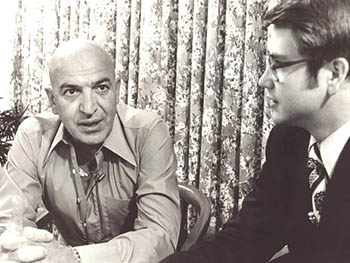 Kojak…Who knew that a Greek, bald-headed, lollypop sucking police detective would take television by storm? Telly Savalas’ catch phrase, “Who Loves Ya’ Baby?”, became part of our lexicon, and the answer to his question was “millions of people, that’s who”. Prior to “Kojak”, Savalas had portrayed mainly villains in film and on TV. When I reminded him of that fact during a 1977 interview, the actor (in character) said, “Hey baby I’m a good guy”. I then obnoxiously started naming all of his villainous roles, and he cut me off and turned surly, saying, “Oh OK, so you want to play it that way huh?”. It was an awkward moment. Kojak…Who knew that a Greek, bald-headed, lollypop sucking police detective would take television by storm? Telly Savalas’ catch phrase, “Who Loves Ya’ Baby?”, became part of our lexicon, and the answer to his question was “millions of people, that’s who”. Prior to “Kojak”, Savalas had portrayed mainly villains in film and on TV. When I reminded him of that fact during a 1977 interview, the actor (in character) said, “Hey baby I’m a good guy”. I then obnoxiously started naming all of his villainous roles, and he cut me off and turned surly, saying, “Oh OK, so you want to play it that way huh?”. It was an awkward moment.
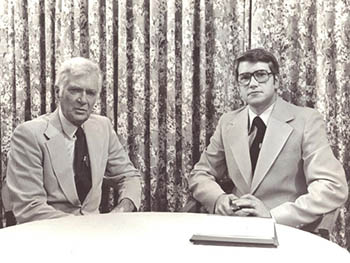 Barnaby Jones…like “Kojak”, this unique private eye series premiered on CBS during the ‘73’-74 season, but that’s the only thing it had in common with Savalas’ show. Coming off of meteoric success as Jed Clampett on “The Beverly Hillbillies”, Buddy Ebsen portrayed TV’s first elderly P.I. and he was ably assisted by his daughter-in-law, played by former Miss America and former Catwoman Lee Meriwether. I interviewed Buddy in 1977, and got to know his real life daughter Kiki when I moderated “A Salute to Prime Time TV Crimefighters” for the Television Academy in 2010. Also attending that event was Ms. Meriwether who my wife Pam and I had gotten to know earlier when she visited Winston-Salem. On that occasion we took her out to dinner and then she asked Pam to help her go shopping for underwear. I did not take part in that excursion. Barnaby Jones…like “Kojak”, this unique private eye series premiered on CBS during the ‘73’-74 season, but that’s the only thing it had in common with Savalas’ show. Coming off of meteoric success as Jed Clampett on “The Beverly Hillbillies”, Buddy Ebsen portrayed TV’s first elderly P.I. and he was ably assisted by his daughter-in-law, played by former Miss America and former Catwoman Lee Meriwether. I interviewed Buddy in 1977, and got to know his real life daughter Kiki when I moderated “A Salute to Prime Time TV Crimefighters” for the Television Academy in 2010. Also attending that event was Ms. Meriwether who my wife Pam and I had gotten to know earlier when she visited Winston-Salem. On that occasion we took her out to dinner and then she asked Pam to help her go shopping for underwear. I did not take part in that excursion.
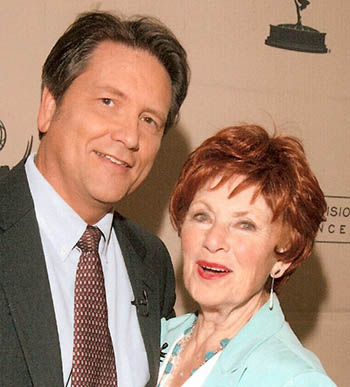 Happy Days …was a Tuesday night ratings winner for ABC until the network moved the show to Thursdays where it fell out of the top 30 for the first time in its ten-year run. Soon after the first season it became clear that Henry Winkler (as the Fonz) was the star of the show, not Ron Howard, something that irked the former Opie of Mayberry. Years later I got to know Marion Ross (“Mrs. C”) while moderating “A Salute to TV Moms”, and we’ve kept in touch ever since. Marion told me that, at one point, she had staged a walk-out on “Happy Days” because she was not being paid enough. “Ronny came to my house, and he said the producer was going to replace me if I didn’t come back to work, so I went back to work.” Happy Days …was a Tuesday night ratings winner for ABC until the network moved the show to Thursdays where it fell out of the top 30 for the first time in its ten-year run. Soon after the first season it became clear that Henry Winkler (as the Fonz) was the star of the show, not Ron Howard, something that irked the former Opie of Mayberry. Years later I got to know Marion Ross (“Mrs. C”) while moderating “A Salute to TV Moms”, and we’ve kept in touch ever since. Marion told me that, at one point, she had staged a walk-out on “Happy Days” because she was not being paid enough. “Ronny came to my house, and he said the producer was going to replace me if I didn’t come back to work, so I went back to work.”
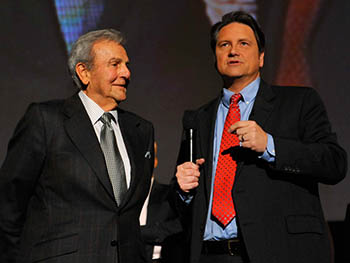 Mannix …Now a cult favorite, “Mannix” almost got cancelled during the first season because the producer thought it would be a good idea to have Mike Connors play an employee of a high-tech computerized detective agency. Studio boss Lucille Ball saved the show, Mannix became a private eye, and the series ran for nine seasons. I got to know Mike Connors when I honored him at the “TV Crimefighters” event. That night he said he envied some of today’s TV action stars who end up each episode in bed with a beautiful woman. “I always ended up getting hit in the head”, said Mike. Mannix …Now a cult favorite, “Mannix” almost got cancelled during the first season because the producer thought it would be a good idea to have Mike Connors play an employee of a high-tech computerized detective agency. Studio boss Lucille Ball saved the show, Mannix became a private eye, and the series ran for nine seasons. I got to know Mike Connors when I honored him at the “TV Crimefighters” event. That night he said he envied some of today’s TV action stars who end up each episode in bed with a beautiful woman. “I always ended up getting hit in the head”, said Mike.
There were a lot of great TV shows on air in 1973, among them: The Bob Newhart Show, The Carol Burnette Show, The Flip Wilson Show, Hawaii Five-O, Kung Fu, The Mary Tyler Moore Show, Maude, Sanford & Son, The Six Million Dollar Man, The Streets of San Francisco, and The Waltons. These and many others are available to view online.
Doctors say that binge eating is bad for you. So is binge drinking.
But so far, binge watching television shows from 50 years ago hasn’t hurt anyone that I know of. Take it from Archie Bunker, who while watching an old movie on TV said to Edith, “I ain’t seen it more than ten times, so leave me alone.” |

|

